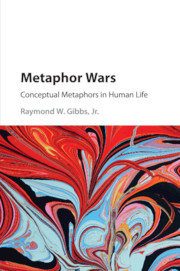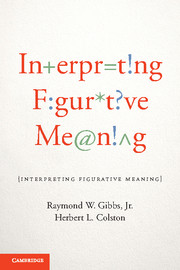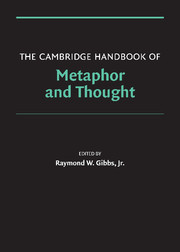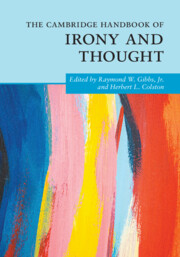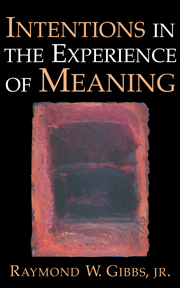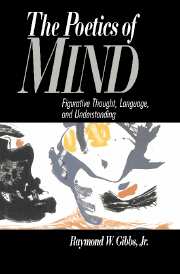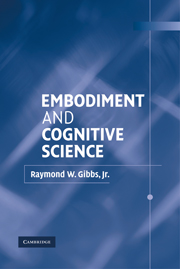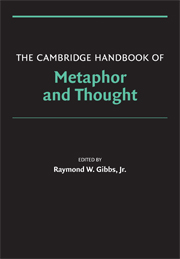Metaphor Wars
Conceptual Metaphors in Human Life
- Author: Raymond W. Gibbs, Jr, University of California, Santa Cruz
- Date Published: May 2019
- availability: Available
- format: Paperback
- isbn: 9781107415553
Paperback
Other available formats:
Hardback, eBook
Looking for an inspection copy?
Please email [email protected] to enquire about an inspection copy of this book
-
The study of metaphor is now firmly established as a central topic within cognitive science and the humanities. We marvel at the creative dexterity of gifted speakers and writers for their special talents in both thinking about certain ideas in new ways, and communicating these thoughts in vivid, poetic forms. Yet metaphors may not only be special communicative devices, but a fundamental part of everyday cognition in the form of 'conceptual metaphors'. An enormous body of empirical evidence from cognitive linguistics and related disciplines has emerged detailing how conceptual metaphors underlie significant aspects of language, thought, cultural and expressive action. Despite its influence and popularity, there have been major criticisms of conceptual metaphor. This book offers an evaluation of the arguments and empirical evidence for and against conceptual metaphors, much of which scholars on both sides of the wars fail to properly acknowledge.
Read more- Presents a complete hearing of the empirical evidence on conceptual metaphors
- Discusses the criticisms of conceptual metaphor
- Proposes how to move research forward on the role that conceptual metaphors play in human life
Reviews & endorsements
'Raymond W. Gibbs, Jr discusses serious issues clearly, eloquently, and always listening to the arguments raised by the critics. He patiently presents his counter-arguments and talks about the many research results produced by the conceptual metaphor theory community, and outside it, results that many of the critics have not even heard of or simply ignored.' Zoltán Kövecses, Eötvös Loránd University, Budapest
See more reviews'This book, by one of the top researchers in cognitive linguistics, is an important contribution to the debate about how people use and understand metaphor … Scholars and researchers engaged directly in metaphor research will find it essential reading.' PsycCRITIQUES
Customer reviews
Not yet reviewed
Be the first to review
Review was not posted due to profanity
×Product details
- Date Published: May 2019
- format: Paperback
- isbn: 9781107415553
- length: 332 pages
- dimensions: 230 x 153 x 20 mm
- weight: 0.5kg
- contains: 2 b/w illus.
- availability: Available
Table of Contents
1. What are metaphor wars?
2. Conceptual metaphor analysis
3. Identifying metaphors in language
4. Inferring conceptual metaphors from language
5. Psychology of conceptual metaphors in verbal metaphor use
6. Conceptual metaphors in multimodal experience
7. Conclusion and the future
Endnotes
References
Index.
Sorry, this resource is locked
Please register or sign in to request access. If you are having problems accessing these resources please email [email protected]
Register Sign in» Proceed
You are now leaving the Cambridge University Press website. Your eBook purchase and download will be completed by our partner www.ebooks.com. Please see the permission section of the www.ebooks.com catalogue page for details of the print & copy limits on our eBooks.
Continue ×Are you sure you want to delete your account?
This cannot be undone.
Thank you for your feedback which will help us improve our service.
If you requested a response, we will make sure to get back to you shortly.
×
